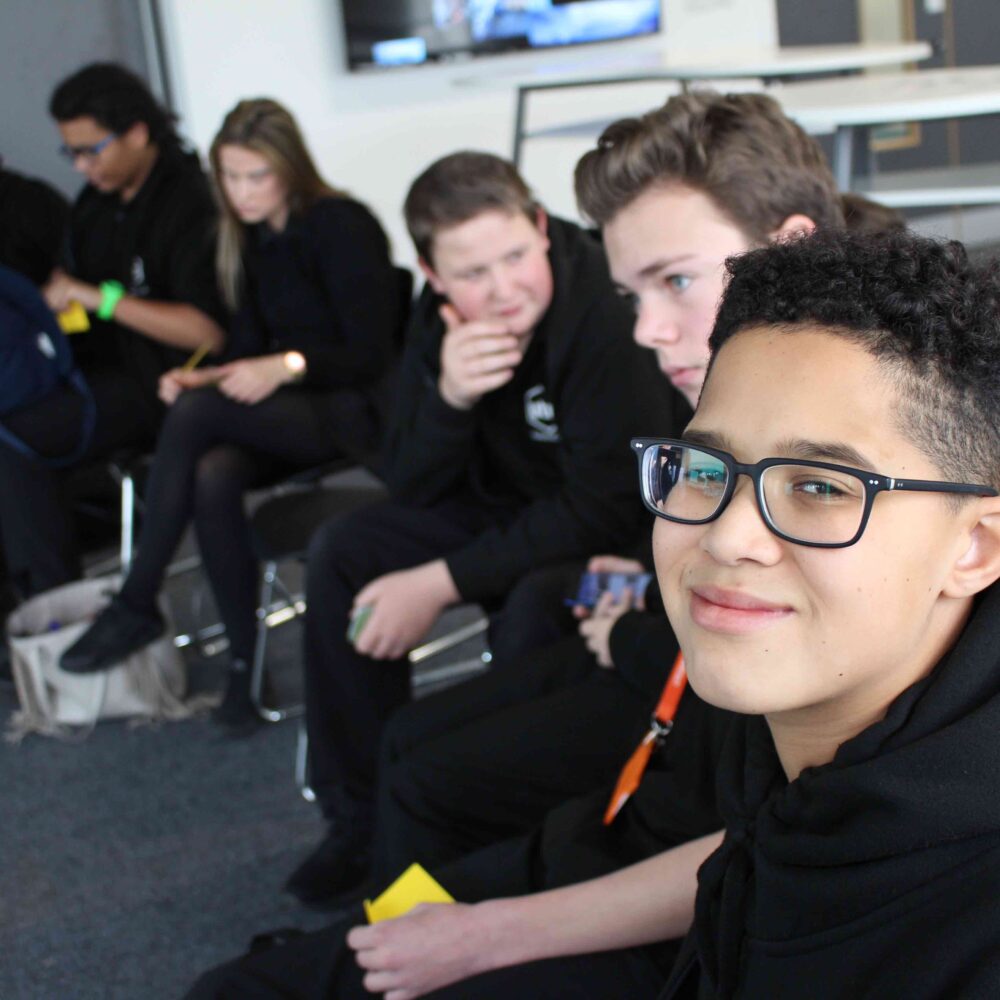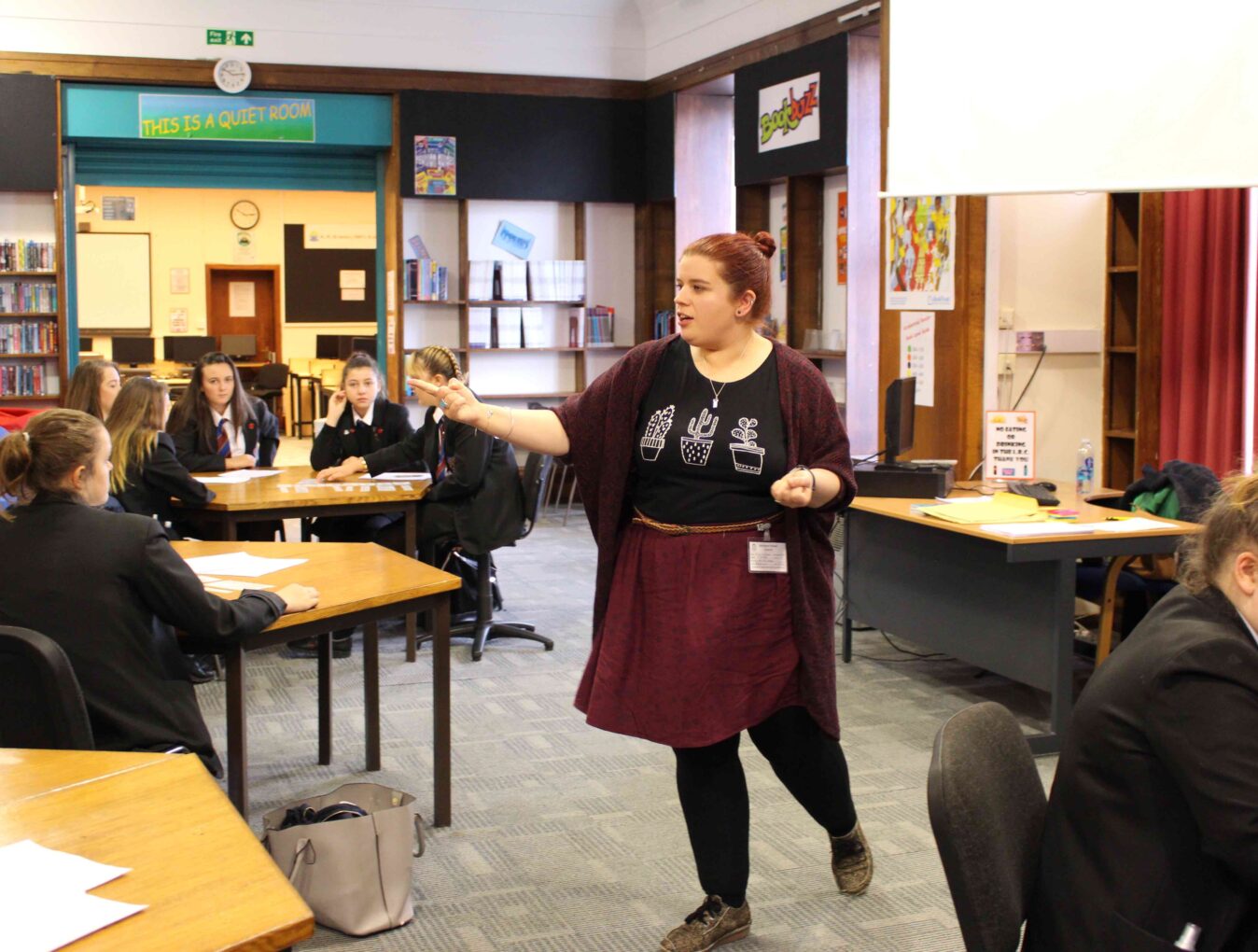



Last month we should have been venturing into schools across Greater Manchester to deliver more of our Equalities Workshops to mark International Day Against Homophobia, Transphobia and Biphobia on May 17th. Instead we spent May reimagining what our equalities work could look like during lockdown, and hope to be announcing more on that next month! In the meantime we’d like to share some reflections from facilitator Alice Proctor who helped to deliver the equalities workshops we ran back in February.
“Why do we need to learn about this Miss? We’re only 12.” This question came after a confident hand shot up in the air halfway through a debate and discussion about inequalities taking place now in our lifetimes; after examples of racism, sexism, ageism and more. Sarah responded exploring the importance of learning about lives other than your own and about how acknowledging your privilege creates space to support others who aren’t born with the same advantages as you might be.
This kind of question is frustrating but also it stood out as an unusual and a brave provocation which because it was responded to with respect and patience meant the student remained engaged in what we were trying to explore for the rest of the session and reflected on moments where she had experienced privilege.
Since assisting in the facilitation of Art with Heart’s Equalities Workshops last February there hasn’t been much public discourse that has filled me with hope here in the UK or around the world so I was interested in what this years conversations might sound like. I imagine a similar feeling of hopelessness is shared by many of the communities that we discuss with young people in our workshops.
Early in the jam packed hour long session we introduce the students to the protected characteristics listed in the 2010 Equalities Act. These are: age, disability, gender identity, marriage and civil partnership, pregnancy and maternity, race, religion or belief, sex, and sexual orientation.
We then focus on the LGBTQ+ community spending the rest of our time together expanding our understanding of this community and it’s history and trying to see where we fit in that picture as a positive force or ally now in 2020.
This is where the hope comes in.


After just a few days of spending time with hundreds of young people aged 12-13 it was impossible not to notice a shift since last year. In almost all the schools there were many openly LGBTQIA+ young people – I was particularly shocked to see at one school there were three trans kids in year 7 alone.
In every school there was a discourse about gender identity that I couldn’t begin to imagine when I was in year 8, sixteen years ago (lol, yes I look like a baby, thanks). And though some teachers were disappointingly uninformed and naïve about the details of what that meant there was an absolute openness to these communities being part of their schools.
The young people were the ones dishing out the hope, though there was still lots of learning to do to clear up definitions and understand the complexities particularly of gender identity, there was overall a real acknowledgement that diversity was what made up these young people’s lives and that felt normal.
One particular moment that blew me away was when I was chatting to a girl at Wardle Academy in Rochdale. She had already explained to me she was an Equalities Representative – part of a team of students who were identifiable by a rainbow patterned lanyard and so made themselves visible to students who might need some peer to peer support.
She told me how her and the rest of the reps were delivering some assemblies as part of LGBT History Month with a ‘particular focus on language.’ These were true allies in action. 11,12 and 13 year old allies using their voices and being supported by their school to do so.
These workshops, however, are by no means obsolete as there is still a lot of learning to do and transitions from tolerance to acceptance that need to happen in our communities. Being part of these workshops has filled me with a much-needed dose of hope that we are slowly, slowly heading in a direction that represents real change. Something that any adult public conversation has not been delivering for me recently.
Alice Proctor
